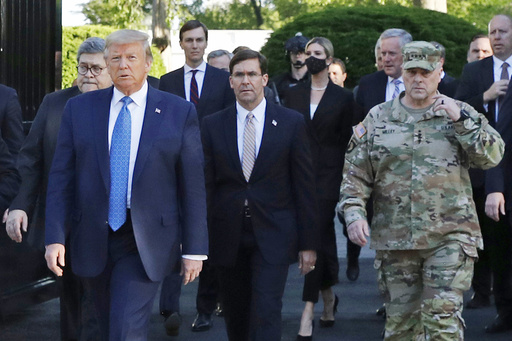WASHINGTON — In a significant display of executive authority, President Joe Biden, during his concluding days in office, granted pardons to Dr. Anthony Fauci, former General Mark Milley, and several members of the House committee that probed the January 6 Capitol insurrection. This action has been seen as a safeguard against possible retaliation from the incoming Trump administration.
Biden’s pardon decision came on the heels of a warning from President Donald Trump, indicating he had a list of perceived enemies who had politically opposed him or held him accountable post-2020 election defeat and following the Capitol attack. Trump has already nominated members of his Cabinet who support his false claims regarding the election and have vowed to target those involved in investigating him.
In a public statement, Biden clarified that issuing these pardons should not imply any admission of guilt or wrongdoing on the part of the recipients. He praised the work of these public servants, asserting that the nation owes them a great deal of gratitude for their dedication and service.
The conversation around these pardons had sparked intense discussions within the highest echelons of the White House. While it is customary for presidents to grant clemency towards the end of their term, these particular pardons are notable because they address individuals who have not faced any formal accusations.
Trump remarked post-inauguration that Biden had chosen to pardon individuals he described as “very guilty of very bad crimes,” dubbing them “political thugs.” Biden has taken the route of utilizing his pardon powers in a potentially unprecedented manner, which may set the stage for Trump’s future use of executive clemency, as well as for subsequent presidents.
Concerns have been raised regarding the implications of such blanket pardons, especially as future administrations might use them to shield allies from legal repercussions. “The grant of pardons to a committee that undertook such important work to uphold the law was unnecessary and, due to the precedent it establishes, unwise,” commented Sen. Adam Schiff, D-Calif.
The pardons issued cover various actions taken by Fauci and Milley dating back to January 1, 2014. Biden emphasized that the investigations and potential prosecutions could irreparably harm reputations and livelihoods, even for individuals who have not erred. Fauci, who led the National Institute of Allergy and Infectious Diseases for nearly 40 years, spoke out against politically driven threats of investigation he has faced, reiterating, “I have committed no crime.” He played a crucial role in the national response to the COVID-19 pandemic, often clashing with Trump’s unscientific public health views.
Milley, who chaired the Joint Chiefs of Staff, expressed his gratitude for the pardon, emphasizing a desire to avoid the turmoil of fighting against vindictive actions stemming from his service. He referred to his time working with Trump, describing him as a fascist and detailing the alarming behaviors surrounding the January 6 attack.
Biden also extended pardons to members and staff of the January 6 committee and law enforcement officials who participated in the investigation. This broad clemency offers protection against potential offenses related to their significant roles during the Capitol riot, during which a mob of Trump supporters surged violently into the legislative building. The committee dedicated 18 months to investigating Trump’s actions and the overall events leading to the insurrection.
In his statement, Biden expressed concern over the ongoing attempts to delegitimize those who participated in the investigation. He noted that rather than accepting blame, many involved in the January 6 attack have persistently sought to intimidate those who uncovered the truth encompassing Trump’s failed election efforts.
Individual acknowledgment of those pardoned wasn’t provided in Biden’s announcement, leading some to learn of their pardons through media coverage. Cheney and Thompson, leading figures of the committee, welcomed the decision, stating their pardons highlighted their commitment to upholding the law while addressing a criminal effort to undermine electoral integrity.
Despite the pardons, some legal challenges may still linger, particularly concerning congressional inquiries into the committee’s work as Republicans wield significant influence to review committee actions in coming terms.
Biden, intent on a seamless transition to the new administration, earlier reached out to Trump, asserting faith in the democratic process even while expressing concerns over the alarming tendencies toward oligarchy. His unprecedented pardons were shaped by these worries, further establishing his presidency as prolific in issuing clemency.
Biden’s actions also echo historical precedents, such as President Gerald Ford’s pardon of Richard Nixon amid the Watergate scandal. Amid ongoing discussions, there remains speculation on Trump’s potential clemency for individuals involved in the Capitol riots, highlighting the continuing political divisions.
Michael Fanone, a former Metropolitan Police officer who faced severe consequences during the riot, expressed disbelief upon hearing of the last-minute pardons issued by Biden, reflecting on the way such actions may resonate within the political landscape.




